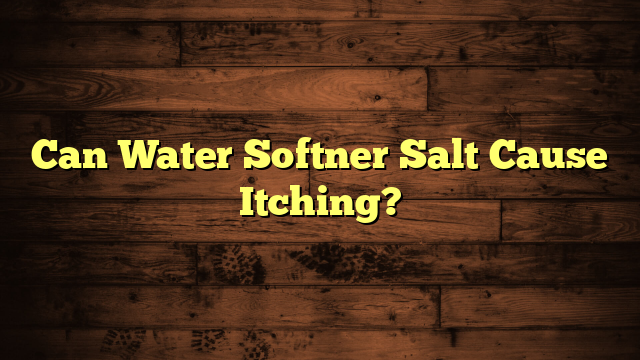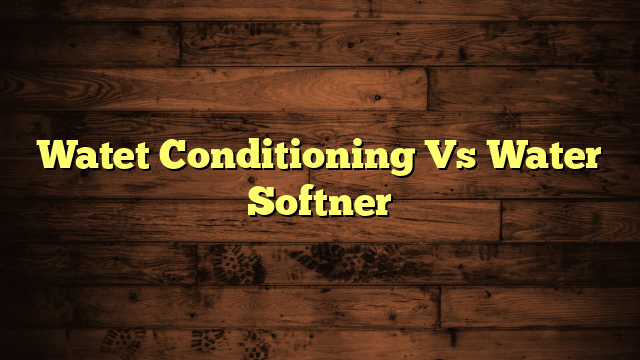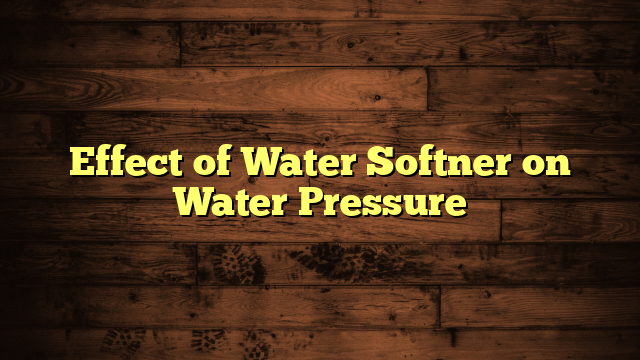What Water Softner System Do I Need?
Did you know that nearly 85% of U.S. households have hard water, which can lead to issues like scale buildup and reduced appliance efficiency? Choosing the right water softener isn't just about convenience; it can greatly impact your home's plumbing and overall water quality. You'll need to evaluate your household size, daily water usage, and the specific hardness level of your water. But how do you determine which system aligns best with your needs? Let's explore the key factors that can guide your decision.
Key Takeaways
- Assess your water hardness level in grains per gallon (gpg) to determine the necessary capacity of the softener system.
- Consider your household size and peak water usage to select a softener with adequate flow rate and grain capacity.
- Evaluate the type of water softener technology, such as ion exchange or salt-free options, based on your preferences and environmental concerns.
- Factor in installation and long-term maintenance costs, including salt usage and regular upkeep, when budgeting for a water softener system.
- Research system efficiency ratings to ensure optimal performance and lower operational costs over time.
Understanding Water Hardness
Water hardness is a critical factor affecting your household's plumbing and appliance efficiency. It's primarily determined by the mineral content of your water, specifically the concentration of calcium and magnesium ions. When water travels through the ground, it dissolves these minerals, which can lead to varying levels of hardness.
You can measure water hardness in grains per gallon (gpg) or parts per million (ppm). Soft water typically has a hardness level of 0-3 gpg, while hard water measures over 7 gpg. If you notice scale buildup in your faucets or appliances, it's a sign that your water is hard.
This mineral buildup can't only reduce the efficiency of your appliances but also lead to costly repairs or replacements over time. Understanding water hardness helps you make informed decisions about potential solutions, such as water softeners, which can mitigate the adverse effects of hard water.
Assessing Household Water Usage
Effective assessment of household water usage is essential for understanding how hard water impacts your daily life. Start by monitoring your water consumption over a month. You can do this by checking your water bill, which often indicates the total gallons used. This figure helps you gauge your household's water usage patterns.
Next, evaluate your household habits. Consider how many people live in your home and their daily routines. For instance, do you frequently run the dishwasher or washing machine? Are long showers a norm? Each of these activities contributes to your overall water consumption and can highlight areas for potential reduction.
Also, take note of any water-using appliances, such as refrigerators or irrigation systems. These can greatly affect water usage, particularly in larger households. Understanding these factors will help you determine the level of water hardness you experience and how it may be affecting your plumbing, appliances, and skin.
Lastly, consider using water meters or flow sensors for real-time data on your usage. This will provide more precise insights into your habits and allow you to make informed decisions regarding water softener options that best suit your household's needs.
Types of Water Softeners
When choosing a water softener, you'll encounter various types, each designed to address hard water issues.
Ion exchange softeners are the most common, using salt to remove hardness minerals, while salt-free alternatives offer a different approach by conditioning water without traditional salt use.
Understanding these options helps you select the best solution for your household needs.
Ion Exchange Softeners
Ion exchange softeners are among the most common and efficient solutions for tackling hard water problems. They work by replacing calcium and magnesium ions, which cause hardness, with sodium or potassium ions.
This process, known as ion exchange, greatly reduces scale buildup in your plumbing and appliances, leading to improved longevity and performance.
Here are some key softener benefits you can expect:
- Reduced Scale Buildup: Protects your pipes and appliances from damaging deposits.
- Softer Water: Enhances the feel of water on skin and hair, improving your bathing experience.
- Improved Soap Efficiency: Allows soap and detergents to lather better, saving you money on cleaning products.
- Extended Appliance Lifespan: Lowers the risk of costly repairs and replacements for water-using appliances.
Salt-Free Alternatives
While ion exchange softeners are popular, salt-free alternatives offer a different approach to managing hard water. These systems utilize salt-free technology to condition water without adding sodium. Instead of removing minerals like calcium and magnesium, they alter their structure, preventing scale buildup on pipes and appliances.
One common type of salt-free alternative is the template-assisted crystallization (TAC) system. TAC uses a mineral filter to convert hard minerals into microscopic crystals that remain suspended in water. This process prevents scale formation while allowing essential minerals to stay in your water.
Another option is the magnetic or electronic softeners, which claim to change the physical properties of hard water using magnetic fields. However, the effectiveness of these systems is often debated and may vary depending on water quality.
If you're looking for a maintenance-free solution, salt-free softeners are an excellent choice. They don't require regular salt replenishment and are environmentally friendly.
Just keep in mind that while they help prevent scale, they don't remove hardness minerals entirely, so you might still notice some hardness in your water.
Key Features to Consider
When choosing a water softener, you need to evaluate its capacity and flow rate to guarantee it meets your household's needs.
Furthermore, consider the type of regeneration process, as this affects both efficiency and operating costs.
Understanding these key features will help you select the right system for peak performance.
Capacity and Flow Rate
Understanding the capacity and flow rate of a water softener system is crucial for best performance in your home. The capacity refers to how much hardness the system can effectively remove before it needs regeneration. In contrast, the flow rate indicates how quickly the system can deliver softened water to your taps.
To ascertain you choose the right system, you'll want to perform a capacity calculation based on your household's water usage and hardness levels.
Here are some key factors to take into account:
- Household Size: More occupants typically mean higher water demand, requiring a larger capacity.
- Water Hardness Level: Higher hardness levels necessitate more frequent regeneration, impacting the capacity needed.
- Peak Flow Rate: Determine your maximum water usage at any given time to guarantee the system can meet demand.
- Daily Water Usage: Calculate your average daily water consumption to gauge the appropriate capacity.
Regeneration Process Type
The regeneration process is a key component of a water softener system that directly affects its efficiency and overall performance. Understanding the different regeneration methods and their frequency can help you choose the right system for your needs.
There are primarily two regeneration methods: time-initiated and demand-initiated. Time-initiated regeneration occurs at set intervals, regardless of the water usage. This can lead to unnecessary salt usage if your water consumption patterns vary.
On the other hand, demand-initiated regeneration triggers the process based on actual water usage, optimizing salt consumption and ensuring you always have softened water available.
When evaluating regeneration frequency, consider your water hardness and daily usage. A system that regenerates too frequently can lead to increased operating costs, while one that regenerates too infrequently may not adequately soften your water.
Look for systems that allow you to customize regeneration settings, ensuring they align with your household's specific needs.
Determining Your Budget
Budgeting for a water softener system requires careful consideration of both initial costs and long-term expenses. To effectively manage your finances, you should adopt robust budgeting strategies that help you evaluate various options.
Start by researching different systems to perform a cost comparison based on your needs and preferences.
Consider these factors:
- Initial Purchase Price: This includes the cost of the unit and any necessary components.
- Installation Costs: Depending on whether you choose to install it yourself or hire a professional, this can greatly affect your budget.
- Maintenance Expenses: Regular maintenance and replacement parts can add up over time, so factor these into your budget.
- Operating Costs: Consider the cost of salt and water usage, which can impact your monthly utility bills.
Installation Options
When evaluating installation options for your water softener system, you have a couple of paths to choose from. The first option is to tackle the installation yourself. Many units come with detailed instructions and all necessary components, allowing you to utilize basic plumbing skills. If you're comfortable with tools and have some experience, this can be a cost-effective choice.
However, if you're unsure about your skills or simply prefer a hassle-free experience, professional installation is the way to go. Hiring a licensed plumber guarantees that the installation methods used are compliant with local codes and standards.
Professionals can efficiently handle complex connections to your water supply and drainage systems, reducing the risk of leaks or malfunctions. Additionally, a professional installation often comes with a warranty, providing peace of mind.
It's important to weigh the cost of professional service against potential complications that might arise from a DIY approach. Ultimately, the choice between self-installation and professional installation depends on your comfort level, expertise, and the specific requirements of your water softener system.
Be sure to evaluate all factors before making your decision.
Maintenance Requirements
After you've installed your water softener system, it's important to understand its maintenance requirements to guarantee peak performance.
Regular maintenance guarantees that your system operates efficiently and extends its lifespan. You'll want to establish a routine for checks and follow maintenance schedules to keep everything running smoothly.
Here are some key maintenance tasks to take into account:
- Salt Level Monitoring: Regularly check the salt levels in the brine tank and refill as necessary to guarantee the best regeneration.
- Cleaning the Brine Tank: Clean the brine tank every few months to prevent salt buildup and potential blockages.
- Inspecting the Resin Beads: Periodically check the resin beads for efficiency. If they're worn out, think about replacing them to maintain soft water quality.
- System Regeneration Settings: Review and adjust the regeneration settings based on your household water usage to enhance performance.
Comparing System Efficiency
Evaluating water softener system efficiency is crucial for ensuring you're getting the most out of your investment. To compare different systems effectively, you need to look at their performance metrics and efficiency ratings. These ratings indicate how well a system removes hardness minerals from water while minimizing salt and water usage during the regeneration process.
When reviewing system performance, take into account factors such as the grain capacity, regeneration frequency, and flow rate. A system with higher grain capacity typically handles larger volumes of water before needing regeneration, which can lead to fewer maintenance tasks.
Moreover, pay attention to the regeneration cycle duration; shorter cycles may indicate higher efficiency.
Efficiency ratings provided by manufacturers are generally expressed regarding grains removed per pound of salt used. Systems with higher efficiency ratings will save you money on salt and water over time.
It's also crucial to examine the technology employed, such as ion exchange or salt-free systems, as these can impact both performance and long-term costs.
Frequently Asked Questions
Can Water Softeners Remove Chlorine From My Water Supply?
Water softeners primarily focus on removing hardness minerals, not chlorine. For effective chlorine removal, consider using activated carbon filters or reverse osmosis systems to enhance your water quality and eliminate chlorine from your supply.
How Long Do Water Softeners Typically Last?
Ever wondered how long your water softener might last? Typically, it ranges from 10 to 15 years. Regular maintenance tips and following replacement schedules can extend its lifespan, ensuring ideal performance throughout its lifetime.
Are There Any Health Risks Associated With Softened Water?
Softened water generally poses minimal health concerns for most people. However, high sodium levels in treated water might affect individuals on low-sodium diets. Always consult a healthcare professional if you have specific health issues.
Do Water Softeners Affect Water Taste or Odor?
Water softeners can influence taste perception and may cause slight odor changes. The sodium added during the softening process sometimes alters the water's flavor, though most users don't report significant differences in taste or smell.
Can I Use a Water Softener With a Well System?
Yes, you can use a water softener with a well system. Just verify the well water quality is compatible, and follow proper softener installation guidelines to avoid issues with mineral buildup or system malfunction.
Conclusion
In choosing the right water softener, think of your home as a garden—each system's unique features nourish your needs. By evaluating water hardness and usage, you can cultivate a solution that blossoms with efficiency. Whether you opt for traditional or salt-free systems, keeping your budget and maintenance in mind guarantees your garden thrives. With the right choice, you'll enjoy the smooth flow of softened water, transforming your household into a sanctuary of comfort and convenience.







